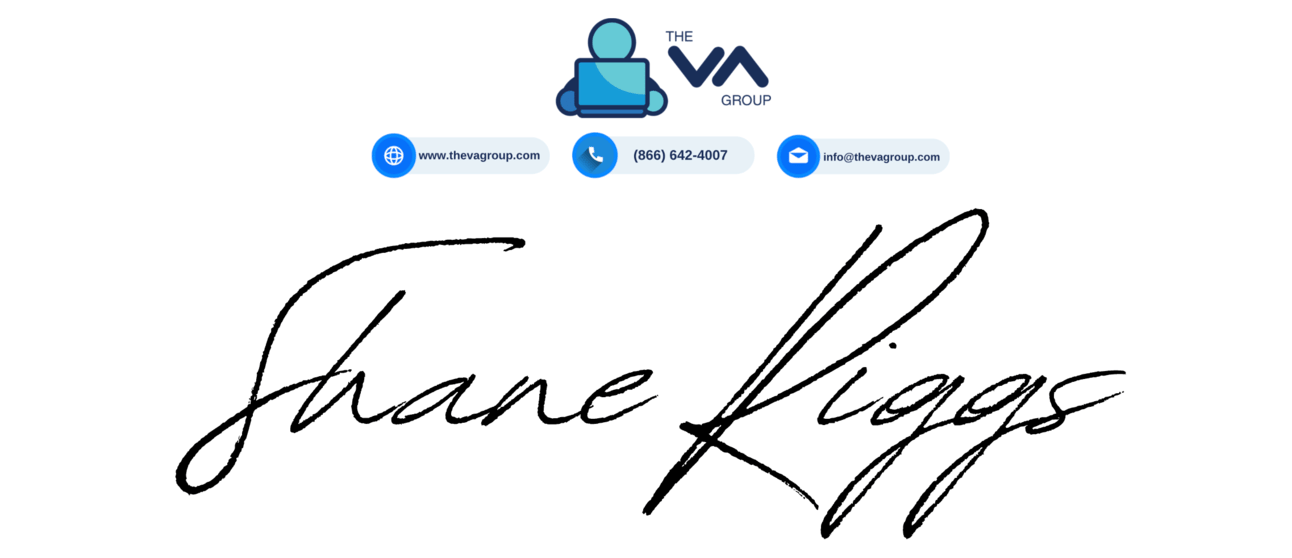- The VA Group
- Posts
- What Changed: AI’s Impact on Repetitive Tasks
What Changed: AI’s Impact on Repetitive Tasks
AI took one of my Virtual Assistant’s jobs, but also gave her a new one.

BEYOND VIRTUAL
Sarah, one of our top VAs, used to prepare weekly reports for three different clients. Before AI, she used to spend hours or even days preparing them. Now, she feeds the raw data into an AI system, reviews the generated reports in 15 minutes, and then spends the saved hours on high-impact tasks.
What I realized is that these repetitive tasks didn’t disappear with the coming of AI; they became invisible. They’re still there, but they don’t consume time as much as they did before. Now, Sarah has stopped being a task executor and has become a strategic consultant for her client.
This isn’t just Sarah’s story. It’s happening across our entire industry, and if you’re not seeing it yet? You’re about to.
Feature Story
THE REPETITIVE TASK TRANSFORMATION
For years, virtual assistants have been defined by handling work nobody else wanted—data entry, email formatting, calendar coordination, research compilation—the digital equivalent of office housework.
With AI now present, these tasks and what it means to be a virtual assistant have been fundamentally altered.

The Three Categories That Ruled Our World
Data Processing & Entry: Hours moving information between systems, updating spreadsheets, formatting reports. Necessary but time-consuming.
Content Creation & Formatting: Writing the same emails repeatedly, creating templated social posts, formatting presentations slide by slide. In a sense, we became human copy machines.
Research & Information Gathering: Scanning dozens of websites for industry reports, finding contact information, and gathering competitor intelligence. Digital detective work requires judgment but not creativity.

Digital Workspace After AI Revolution
Here's what happened: AI didn't replace VAs. It eliminated the parts of VA work that kept them stuck in low-value roles.
Data Processing Revolution: AI extracts, formats, and transfers data between systems in seconds. What used to take hours happens while you grab coffee.
Content Creation Transformation: AI generates first drafts, follows brand guidelines automatically, and adapts tone for different audiences. VAs now spend time refining and strategizing rather than creating from scratch.
Research Intelligence: AI scans thousands of sources simultaneously, compiles insights, and presents findings in any format needed. Research that took days now takes minutes.
Moving Up the Value Chain
When the repetitive work disappeared, something fascinating happened. VAs didn't become unemployed—some became strategic partners, and some AI consultants.
Sarah, who I mentioned earlier, now spends her time:
Analyzing the data AI processes to identify business opportunities
Using AI-generated content as starting points for strategic communications
Taking AI research and turning it into actionable business intelligence
Instead of drowning in repetitive tasks, Sarah focuses on high-impact work for her clients that gives more value to her clients’ companies.
AI handles the repetitive, humans handle the strategic.
Visionary Voices
DR. ERIK BRYNJOLFSSON: THE AUTOMATION VS. AUGMENTATION REVOLUTION

This issue has been a hot topic for a while now. When most people hear "AI automation," they picture robots replacing humans. Dr. Erik Brynjolfsson, Professor at Stanford Institute for Human-Centered AI, has spent decades proving this narrative is dangerous.
His research reveals something that perfectly explains what's happening in the VA industry: machine learning seldom replaces entire occupations, but instead transforms specific tasks within an occupation.
The Task-Based Revolution
Brynjolfsson's research centers on the "task-based approach" to AI, examining AI's ability to augment individual tasks rather than entire jobs. For VAs, this distinction is everything.
His customer support research proves this works: AI assistance increases worker productivity by 14% on average, with novice workers seeing 38% improvement while experienced workers maintain their competitive advantage.
For business owners, this means your VAs can now:
Handle repetitive tasks through AI automation more efficiently than ever
Focus on strategic work requiring human judgment and creativity
Deliver higher value through uniquely human insights and relationship management
"I wouldn't be surprised if 50 percent or more of existing jobs had to change drastically"-Erik Brynjolfsson
Learn more: Stanford Digital Economy Lab
The Trend
WHERE REPETITIVE WORK DIES

The largest shift in virtual assistance since the internet made remote work possible—and we’re all here to witness it! Across every industry, repetitive tasks are migrating from human hands to AI systems, and the implications go far beyond just saving time.
The Skill Shift is Real:
Data entry → Data analysis
Content creation → Content strategy
Task coordination → Project management
Information gathering → Business intelligence
The Rate Revolution: VAs making this transition command 2-3x higher rates. The market values strategic thinking far more than task execution, meaning better ROI for your business.
The New VA Job Description: The most successful VAs of 2025 aren't advertising their ability to handle repetitive tasks. They're promoting their ability to interpret data, develop strategic recommendations, optimize business processes, and manage complex projects with AI assistance.
Repetitive tasks haven't disappeared, but they've become the baseline expectation that AI handles automatically. The real value is in what humans do with that foundation.
Want to learn more about measuring the real ROI for AI + VAs? Check out Issue #9!
A Final Note
We're at a crossroads that every VA and businesses face: adapt or become obsolete. But what I want you to understand is that this isn't a threat to your VA partnership—it's the greatest opportunity for maximizing your investment.
The VAs who thrive embrace AI as their competitive advantage, using it to handle the repetitive foundation so they can focus on strategic work that drives your business forward.
The question isn't whether AI will change how VAs work. The question is whether you're ready to benefit from VAs working at a higher level.
The repetitive tasks that used to define virtual assistance are becoming automated. What remains is everything that makes human partnership invaluable: judgment, creativity, relationship-building, and strategic thinking.
That's not just a better way to work. That's a better way to grow your business.
Until next time,
